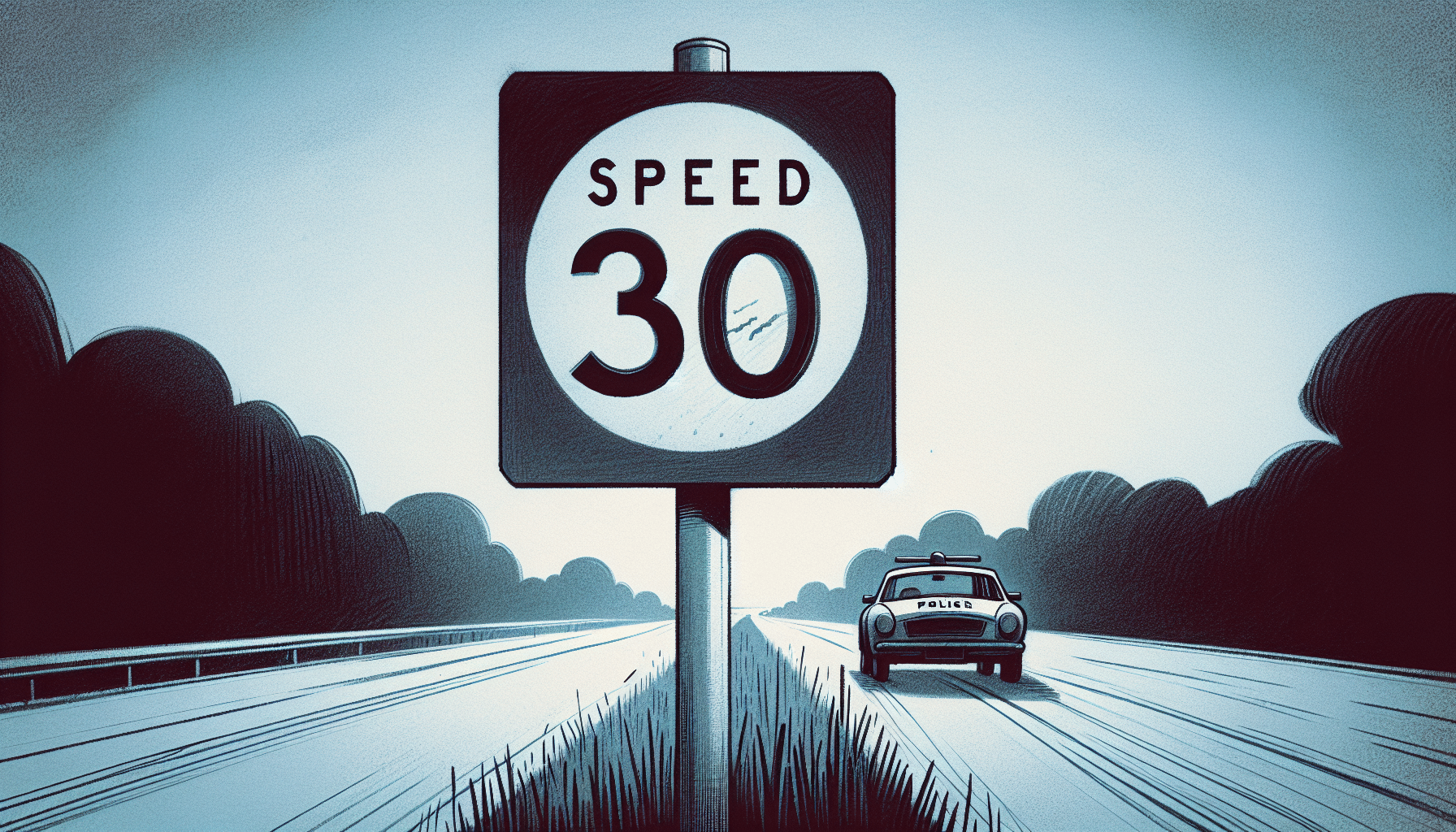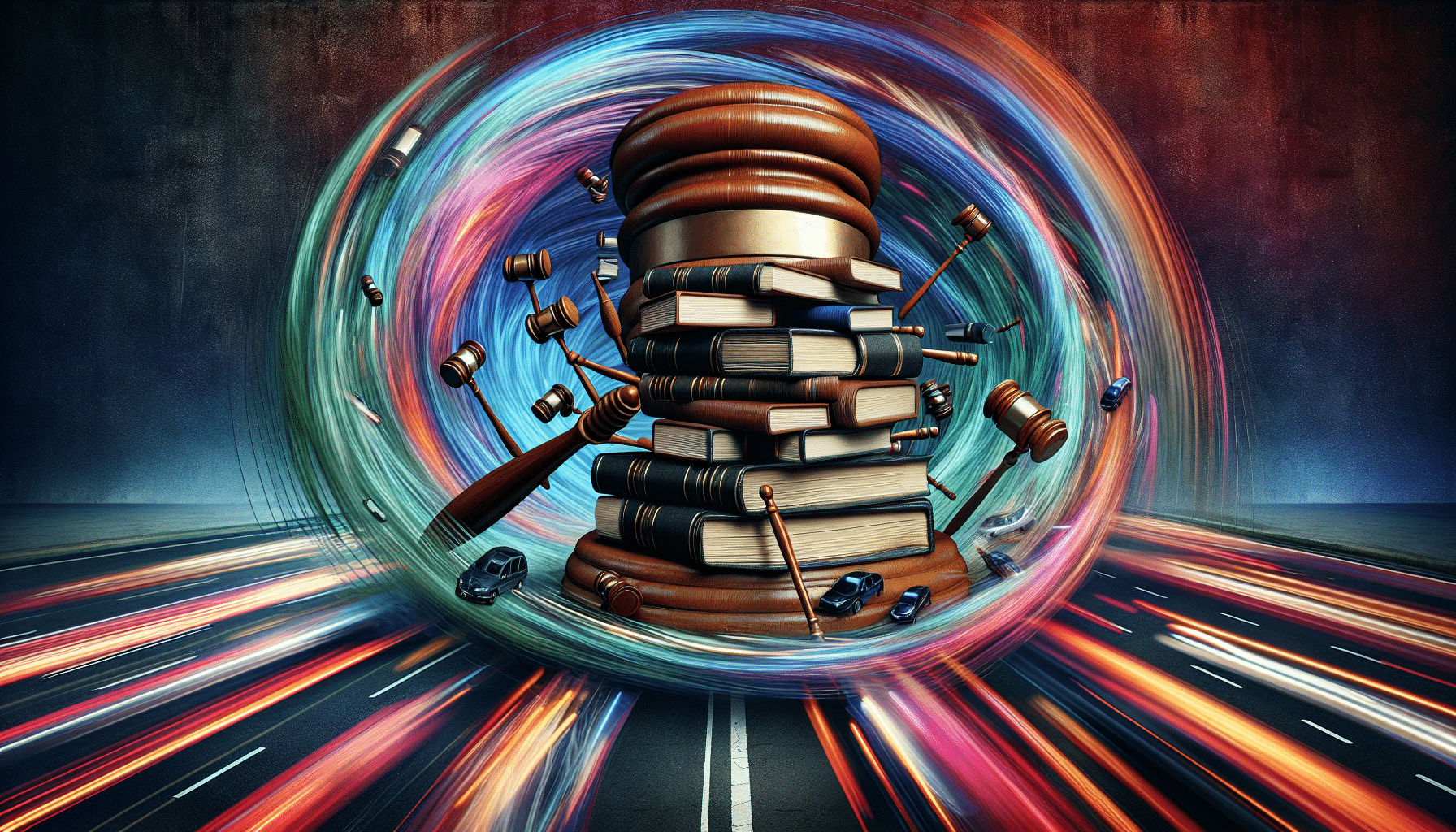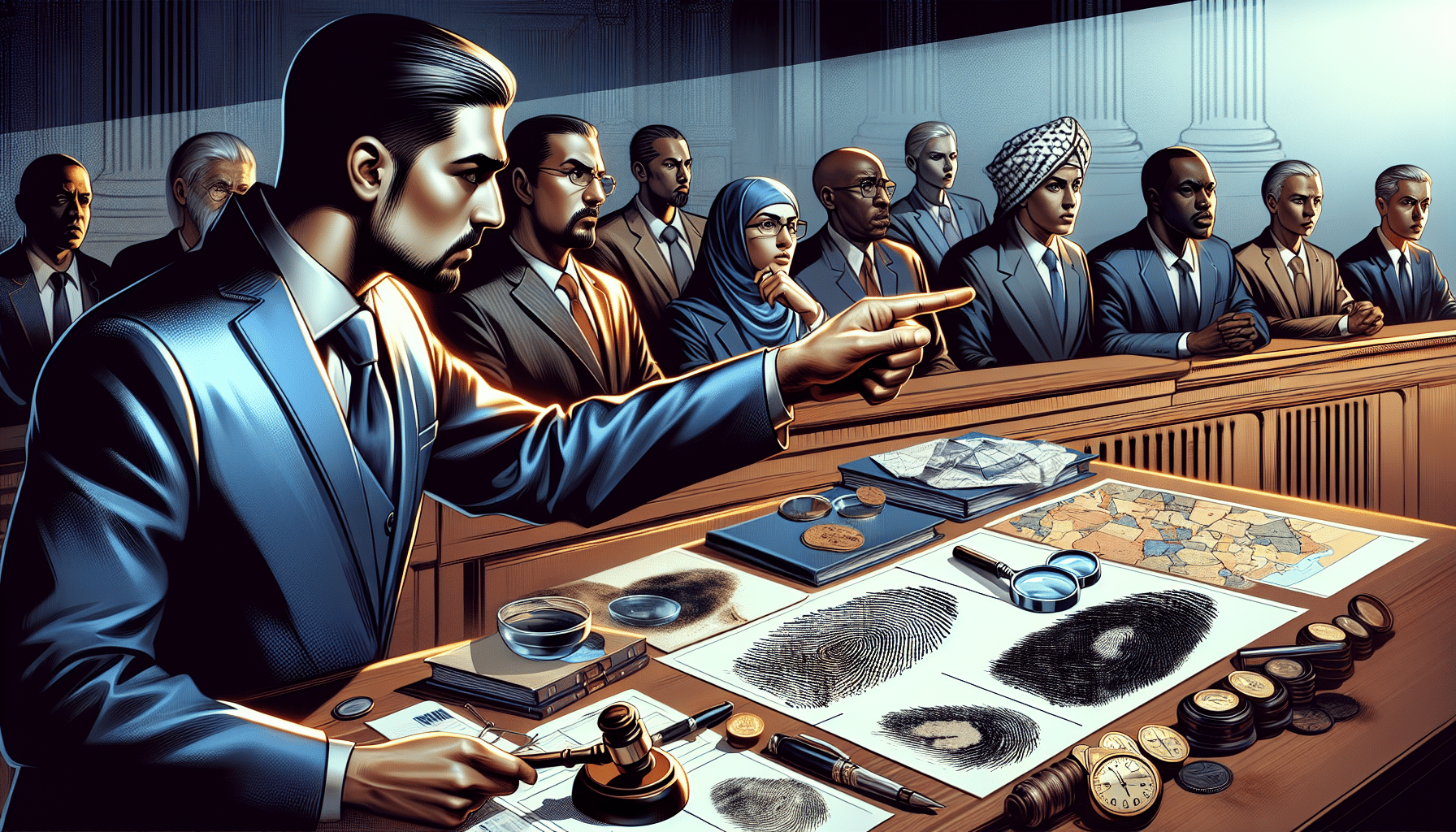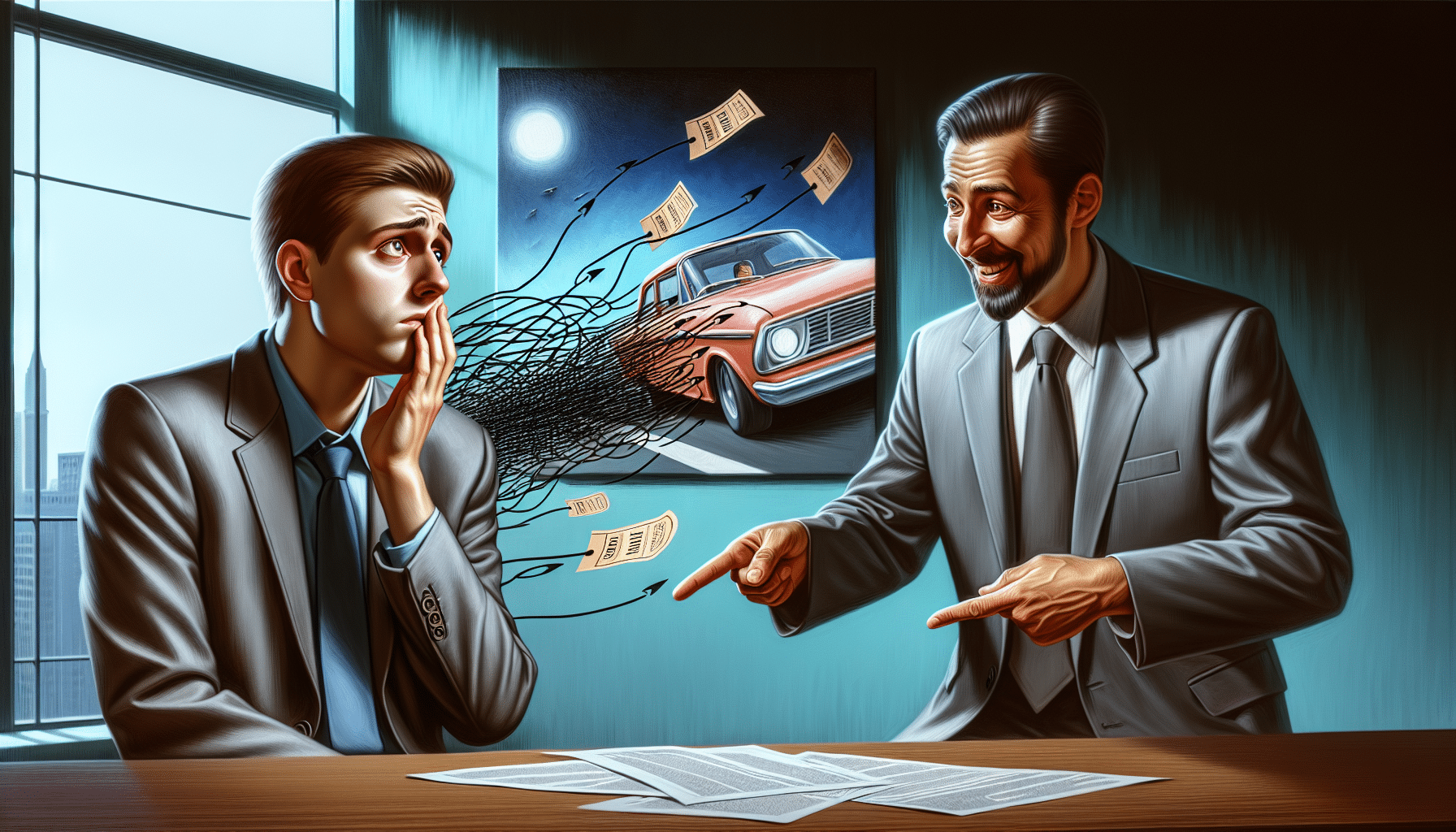Beat a speeding ticket by learning the best strategies to dismiss your ticket.
This article eliminates the guesswork and equips you with essential tactics to tackle your speeding ticket head-on.
We aim to provide, actionable strategies that can make the difference in court between success and defeat.
Key Takeaways
- Examine your speeding ticket in detail, including conditions during the incident, to discover inconsistencies or flaws that may strengthen your defense in traffic court.
- Build a solid defense by understanding relevant traffic laws and statues, requesting evidence from the citing agency, and possibly calling into question the accuracy of the speed detection equipment used.
- Prepare and organize evidence to support your case, such as photos, witness statements, and speedometer calibration, and consider legal defenses like ‘mistake of fact’ and ‘necessity’.
Understanding Your Speeding Ticket

Getting slapped with a speeding ticket can feel like a hit-and-run on your finances and driving privileges.
Don’t admit defeat just yet – grasping the implications of your ticket is the initial step towards a strong defense.
Consider this: Any speeding ticket is more than just a slip of paper; it’s a labyrinth of legal implications, including hefty fines, soaring insurance rates, and points that cling to your license like barnacles.
Examine your ticket carefully, like a treasure map, to uncover any potential flaws. It contains essential details such as your alleged speed versus the posted limit, the officer’s name, and the preliminary court date – all of which can serve as coordinates to navigate your defense.
Remember, the price of a speeding ticket isn’t just measured in dollars; the national average increase in car insurance premiums hits a staggering 24% post-ticket, with first-time offenders sometimes spared from the hike. The stakes are high, and the road to redemption starts with knowing your enemy.
A careful examination of your ticket’s details could uncover nuances that may sway the case in your favor and even get your speeding ticket dismissed.
Was the posted speed limit clear and visible, or obscured by a rogue branch?
Did the officer record your speed accurately, or is there room for doubt? Understanding these elements is crucial, as they can form the backbone of your legal defense in court.
Analyzing the Incident
Have you ever driven down a wide, open road where the speed limit felt like a suggestion rather than a law?
Our own tale began on a five-lane road where the posted 25 mph limit seemed more fitting for a sleepy residential street than a bustling thoroughfare. Yet, there it was, the alleged violation that brought us face-to-face with the officer’s subjective conclusion and the cold, hard reality of a speeding ticket.
Consider this: what if the speed signs were playing hide and seek, camouflaged by overgrown foliage or a broken branch? Could a ‘mistake of fact’ be your knight in shining armor, charging into court to challenge the ticket?
Weigh the officer’s observations against the scene of the incident. Perhaps the officer’s view was compromised, or their assessment was more of a guess than a calibrated measurement.
In our situation, the officer recorded a speed of 45 mph in a 25 mph zone. But was this a true reflection of our actual speed, or could there be a discrepancy worth exploring?
This is where your analytical skills can shine, peeling away layers of the officer’s observations and revealing the core truth of the incident.
Understanding the Traffic Law
Before braving the challenging landscape of court, familiarize yourself with the relevant legal terrain. Knowing precisely which traffic law you’ve allegedly violated lays the groundwork for your defense.
It’s similar to understanding the rules of chess before you move your king; without this knowledge, you’re playing a game of chance, not strategy.
Traffic laws cover a wide array of issues, from stop sign violations to right of way at a double yellow line.
Our journey into the legal jungle began with a simple step: looking up the law we were accused of violating. By doing so, we discovered the nuances of the posted speed limit and how it applies to different traffic conditions – insights that were like a compass pointing us towards a solid defense strategy.
Understanding traffic laws isn’t just about dodging penalties; it’s about equipping yourself with the knowledge to challenge an alleged violation on solid ground.
Whether it’s the intricacies of a traffic signal or the subtleties of a speed limit, knowing the law is your best ally. It’s the difference between pleading guilty out of confusion and confidently contesting a ticket with the finesse of a seasoned traffic court veteran.
Building a Strong Defense

Entering court without a strategy is akin to attempting to navigate a maze while blindfolded.
To stand your ground against a speeding ticket, you need to construct a defense as sturdy as a fortress.
This involves more than just a compelling narrative; you must gain access to the government’s evidence against you, a process known as ‘discovery’ before you go to court.
Creating a discovery request is similar to dispatching a reconnaissance team; it needs to be accurate, focused, and written. Ensure you:
- Specify the evidence needed
- Direct your request to the law enforcement agency, the prosecuting attorney, and the court clerk
- If this initial sortie goes unanswered, follow up with a second request
- If needed, file a ‘motion to compel discovery’ to break down the gates of silence.
Remember, the courtroom is your battleground, and local procedures are the rules of engagement.
Familiarize yourself with these protocols, perhaps making your discovery request at the arraignment to set the stage for your defense.
This proactive approach not only fortifies your position but also signals to the court that you’re not just another hapless defendant; you’re a well-armed adversary ready for the fray.
Challenging the Officer’s Subjective Conclusion
Arm yourself with knowledge; it’s time to contest the officer’s interpretation of events.
Remember, in the realm of ‘presumed’ speed limits and ‘basic speeding laws,’ the speed you were cruising at might actually be defensible if it was reasonable and safe, given the circumstances at the time.
What if you could prove that your driving was not only safe but the epitome of responsibility, even as the officer’s radar gun screamed otherwise?
Imagine casting doubt on the officer’s judgment, suggesting their view was obstructed or their mind elsewhere when they pegged you for speeding. Highlighting these discrepancies isn’t about undermining authority; it’s about ensuring accuracy and fairness in legal judgment.
And if an unexpected obstacle or sudden illness forced you to hit the gas, then a necessity defense might just be your silver bullet, demonstrating that speeding was the only choice to avoid immediate danger.
What if your smooth and steady pace was mistaken for reckless speeding due to the officer’s subjective judgment? Or what if their memory was as hazy as a foggy morning, clouding their recollection of the incident?
Your challenge is not to a duel but to the veracity of their claims. After all, in the court of law, it’s not the officer’s word that reigns supreme but the scales of justice, balanced by evidence and reason, and the officer’s ability to present an accurate account.
Disputing the Accuracy of Speed Detection Equipment
Now, we should focus on the devices that recorded your speed – namely, the radar and LIDAR guns. These devices, like all machines, are fallible and require regular calibration to maintain accuracy.
Questioning the officer’s calibration records and maintenance history can unearth valuable nuggets of doubt about their reliability.
Imagine a scenario where Mother Nature herself becomes an ally. Adverse weather conditions have the power to skew radar readings, potentially providing a shield for your defense if such conditions were present at the time of the alleged speeding.
Moreover, the officer wielding the radar gun must be a maestro of the instrument, with proper training and skillful use critical to its effectiveness.
But what if the radar gun, with its margin of error, had locked onto another vehicle’s speed instead of yours?
Or what if its readings were nothing more than a mirage, an electronic illusion?
Arguing against the accuracy of a radar gun may seem like challenging a titan, but with specific evidence that casts doubt on its performance, you might just bring this Goliath to its knees.
Presenting Evidence to Support Your Case

To succeed in court, a sturdy defense isn’t enough; you also need the right supporting evidence. Presenting evidence to support your case is like drawing the bowstring back – you must be precise, powerful, and on target.
Evidence that undercuts the officer’s observations or casts a shadow of doubt on the speed detection equipment can turn the tide in your favor.
Documents that showcase your commendable driving habits, such as a spotless driving record or traffic school certificates, are like medals of honor that can sway the court’s opinion.
If there’s any question about the identity of the driver at the time of the violation, establishing that the officer may have mistaken you for someone else can be a game-changer.
Your evidence is not merely a pile of documents; it’s a narrative that tells your side of the incident. Each piece is a chapter, contributing to a compelling tale that challenges the prosecution’s plot.
Whether it’s photographic evidence or witness statements, your goal is to create a narrative so convincing that the judge can’t help but follow your lead.
Collecting Relevant Evidence
Gathering evidence starts with amassing all possible proof to enhance your defense. Think of each piece as a puzzle that, when assembled, reveals the big picture of your innocence.
Photographs of the scene can act as silent witnesses, while speed performance data can debunk the officer’s claims of your alleged speed.
Your vehicle’s speedometer, if calibrated, alongside GPS data, can provide a technological alibi that refutes the officer’s version of events.
Additionally, witness statements and expert testimony can lend weight to your argument, challenging the officer’s observations and questioning the infallibility of the speed detection equipment.
Organizing this evidence is as crucial as collecting it. Like a general marshaling troops, you must arrange each piece in an order that strategically supports your case.
In the courtroom, a well-organized dossier can be as persuasive as a well-delivered speech, so take care to present your evidence in a manner that leaves no room for doubt.
Organizing and Presenting Your Evidence
Once you have gathered your evidence, the next step is to arrange and present it in a way that lends weight to your argument.
Here’s how to do it:
- Create a structured outline of your defense that weaves your evidence into a compelling narrative.
- This outline is your script, guiding the court through the key locations and moments of the incident.
- Each piece of evidence should be presented as a beacon, illuminating your path to acquittal.
Practicing your presentation is just as important as gathering your evidence. Like a performer rehearsing for the stage, practice delivering your argument with clarity and confidence.
Here are some tips to help you practice effectively:
- Conduct mock trials to simulate the courtroom environment and practice presenting your case.
- Time your presentation to ensure that you stay within the allotted time limit.
- Seek feedback from others, such as colleagues or mentors, to get constructive criticism and improve your delivery. By following these tips, you can hone your courtroom performance and become a convincing advocate for your own case.
Remember, the courtroom is your stage, and the judge and jury your audience. Presenting your evidence with precision and passion can sway even the most skeptical of jurors.
Your goal is to tell a story so compelling that it resonates with the truth and dismantles the prosecution’s case, piece by undeniable piece.
Legal Defenses That May Apply

As you get ready to make your case in court, think about the different legal defenses available to you.
A well-chosen defense can act like a master key, unlocking the door to your freedom from the ticket’s clutches. For instance, a ‘mistake of fact’ defense is your claim that you had an honest and reasonable belief that you were following the law, a card that can be played when a factual situation is beyond your control.
One might argue that they were blissfully unaware of the speed limit due to poor signage, despite there being default speed limits for unmarked roads.
Or perhaps the necessity defense can shield you if you had to exceed the speed limit to prevent a significant accident, proving that under the circumstances, you had no choice but to speed.
Legal defenses are not about weaving tales of fiction but about revealing circumstances that led to a reasonable error.
Whether it’s avoiding an accident or responding to an emergency, these defenses put your actions in a context that the law can recognize and, perhaps, absolve.
Mistake of Fact
The ‘mistake of fact’ is a nuanced defense that hinges on an honest and reasonable error on your part. It’s like an optical illusion; what you saw and believed to be true turned out to be misleading.
Imagine you didn’t see a stop sign because an overgrown tree branch played the role of a curtain, leading to a traffic violation – that’s where ‘mistake of fact’ comes to your rescue.
However, waving the ‘mistake of fact’ flag doesn’t mean claiming ignorance of the law or the speed limit, as this approach is akin to bringing a knife to a gunfight – it simply won’t hold up in court.
Instead, your defense should be grounded in a tangible, objective observation that can be verified, such as the presence of a broken branch obscuring a crucial sign.
Engage the court with a narrative that places your ‘mistake of fact’ in a realm of reasonable doubt. Let them see through your eyes the hidden stop sign or the misleading cues that led to your alleged violation.
It’s about painting a picture so clear that the judge can’t help but see the innocence in your error.
Necessity
In the heat of the moment, when faced with serious and immediate danger, the law recognizes that breaking the speed limit may be the lesser of two evils.
The ‘necessity’ defense is like an emergency brake, used only when there is no other option to avoid harm. Picture yourself in a scenario where speeding is the only way to dodge a catastrophe, such as rushing a sick child to the hospital – this is the essence of the ‘necessity’ defense.
The crux of this defense is that your actions, while technically violating traffic laws, were taken to prevent a greater threat or harm.
It requires convincing the court that any reasonable person in your shoes would have done the same, driven by the urgency of the situation rather than a disregard for the rules.
When pleading ‘necessity,’ it’s crucial to substantiate your claim with evidence. Did you call for an ambulance but had to act before help could arrive? Were there witnesses to the emergency that necessitated your acceleration?
These are the details that can turn your seemingly unlawful act into a legally justified one, painting your decision to speed as not only rational but necessary.
What Not to Do: Ineffective Defenses
Being aware of what to avoid can be as crucial as knowing the right steps to take. When it comes to defending against a speeding ticket, certain tactics are equivalent to spinning your wheels in the mud – they’ll get you nowhere fast.
Claiming ignorance of the law, such as not knowing the speed limit, is like trying to use a get-out-of-jail-free card in traffic court – it simply doesn’t work.
Asserting that the traffic violation never happened or accusing the officer of fabricating the event is a risky gamble without substantial evidence to support your claims. Such defenses can come across as desperate attempts to evade responsibility, potentially damaging your credibility in the eyes of the court.
Instead of relying on these ineffective defenses, focus on building a case grounded in fact and reason.
For every claim you make, be prepared to back it up with solid evidence. This way, you’re not just denying the violation but actively disproving it, which is a far more powerful and effective approach in the eyes of the law.
Seeking Professional Help: When to Hire a Traffic Ticket Attorney
At some point in a driver’s journey through traffic court, it might become challenging, and the idea of seeking professional assistance can become appealing.
A traffic ticket attorney is like a seasoned guide through the wilderness of traffic law, capable of navigating the twists and turns that might leave you lost. With their expertise, they can challenge the accuracy of speed detection equipment, represent you in court, and develop tailored defenses that may save you time and resources.
Statistics show that around 55% of drivers who enlist legal representation to fight their traffic tickets, such as speeding tickets, win their cases. This isn’t a guarantee of victory, but it’s a significant edge that can make all the difference.
Consider hiring a traffic ticket attorney when the stakes are high – if the ticket could lead to skyrocketing insurance premiums or the threat of a suspended license.
While the cost of hiring an attorney can vary, think of it as an investment in your driving future. For commercial drivers, the stakes are even higher, making legal assistance not just an option but a necessity. I
n the end, partnering with a traffic ticket attorney can be the deciding factor between a cleared record and a costly blemish on your driving history.
Summary
As we pull into the final stretch of our journey, let’s recap the essential strategies for beating a speeding ticket.
From thoroughly understanding your ticket to challenging the officer’s subjective conclusions and disputing the accuracy of speed detection equipment, we’ve navigated the complex terrain of traffic court defense. Presenting your evidence effectively and exploring legal defenses like ‘mistake of fact’ and ‘necessity’ can enhance your chances of a favorable outcome.
Remember the pitfalls of ineffective defenses and the potential benefits of seeking professional help from a traffic ticket attorney.
These are the road signs that can lead you to traffic court success, helping you to avoid the potholes of increased insurance premiums and points on your license.
So, take these strategies to heart and approach your traffic court date with confidence.
With the right preparation and a clear understanding of the law, you can challenge your speeding ticket and aim for the best possible result. Drive forth with the knowledge and tips from this guide, and may the road to clearing your name be a smooth one. Our overall goal is to have your speeding ticket dismissed with the least amount of pain.
Frequently Asked Questions
What should I look for on my speeding ticket to build a defense?
Look for personal and vehicle information, location of the offense, police officer’s name, posted speed limit versus your recorded speed, and any preliminary court date on your ticket. Look for inaccuracies or details that may support a ‘mistake of fact’ defense.
A police officer will be required to show your driving record was dirty if he did not issue a warning and is demanding you go to court. He might also try to convince you to attend traffic school and not go to court.
How can I challenge the officer’s conclusion that I was speeding?
You can challenge the officer’s conclusion by arguing that your speed was reasonable and safe, presenting reasons for the officer’s flawed judgment, or providing evidence of a necessity defense if speeding was due to an emergency. Keep in mind that gathering evidence and presenting a strong argument will be crucial in challenging the officer’s conclusion.
What kind of evidence should I collect to support my case?
You should collect physical evidence like photographs, technological records, and witness statements to form a coherent narrative for the court. This evidence can significantly support your case.
When is it worth hiring a traffic ticket attorney?
It’s worth hiring a traffic ticket attorney if the ticket could impact your insurance rates or result in license suspension. An attorney can also offer valuable assistance for commercial drivers or in complex cases.
Are there any defenses I should avoid when fighting a speeding ticket?
Avoid claiming ignorance of the law or asserting the violation never happened without compelling evidence. These defenses are generally ineffective and can harm your credibility in court.




